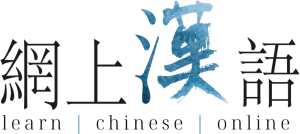Grammar 9
Learn Chinese: grammar 9
多少
We have already seen the interrogative word 几 jǐ "how many?".
Example:
有几个人?
How many people are there?
有七个人。
There are 7 people.
We use 几 when we think that the number or quantity in the answer is not very high, below 10. Thus, to ask for the age of a child, it will be necessary to say 你几岁? While for an adult one will say 你多大?
The interrogative word 多少 duōshǎo "how much?" is used when the response is high (more than 10). 多少 is used without classifier, which should not be forgotten in the answer:
有多少人?
How many people are there?
有二十八个人。
There are 28 people.
The sentence "How much does it cost?" is then often translated by 多少钱? duōshǎoqián ? The classifier for money is 块 kuài. The answer will be constructed as follows: 三十块。 30 (yuan). Yuan, the Chinese currency, is in brackets because in this sentence it is not specified which currency is actually used. It is the context that let us know which one is used.
The word "money" 钱 is sometimes added after the classifier:
三十块钱。
If we want to know how much it costs and the price seems less than 10, we can say 几块钱?
It is customary to put the name of object(s) before "how much does it cost?" :
这些杯子多少钱?
How much do these glasses cost?
but in answering is often the other way round:
五块钱一个
5 yuan the unit.
Mode of transport
In Chinese the word 车 chē usually refers to the car, but it has the broader meaning of "vehicle" and, depending on the context, may also refer to the bicycle, bus, etc.
In a sentence, if the mode of transport is an adverbial complement, it is placed before the verb. It is introduced by 坐 zuò "to sit" which then takes on the meaning of "to take a mode of transport":
我坐车去买东西。
I will go shopping by car/bus/...
我坐火车去北京。
I'm going to Beijing by train.
If we want to make clear that we drive ourselves, we must use the verb 开车 kāichē "to drive":
我开车去商店买东西。
I go to shop at the store by car.
The corresponding interrogative word is 怎么? zěnme ? "How?" :
你怎么去买东西?
How are you going shopping?
Do not mix up 怎么? zěnme ? "how?" with怎么样? zěnmeyàng ? "how is it?"
For example :
中国怎么样?
How is China?
你怎么样?
How are you ? (Different from 你好吗? which means "Are you ok?")
他的中文怎么样?
How is his Chinese?
The weather
The climate / weather is called 天气 tiānqì, literally "celestial breath". In Chinese tradition, the word "breath" 气 qì is often used to describe what is considered a dynamic force/movement/energy.
To ask questions about the weather, we must say:
天气怎么样?
Possible answers to your level are:
天气很好。
The weather is nice.
天气不好。
The weather is bad.
下雨。
It is raining. (Note that one must not add 天气 just beforehand.)
天气很热。
It's hot.
天气很冷。
It's cold.
Modal particle 了 le le quick revision. Let’s compare:
下雨。
It is raining.
/ 下雨了。
It begins to rain.
天气很冷。
It's cold.
/ 天气冷了。
The weather has cooled.
很 hěn which removes the comparison with an adjectival verb is no longer necessary with the modal particule 了 le, because the latter already implies a comparison with a previous state (change of situation).
The verb 出
The verb 出 chū "to go out" is never used alone. If you want to say "to go out" it will be necessary to add a directional 去 qù (away from) or 来 lái (towards):
他们出去了吗?
Have they gone out?
出来!
Come out! (and then come here)
出去!
Get out of here ! (and then go away)
租 zū means "rent". As in English, this word has two meanings: it is used for the owner who rents out, who lets, or for the tenant who rents ...
If you are a tenant, you will only say 租. But if you are an owner, you will say 出租.
This little subtlety is not part of HSK level 1 program, but it does illustrate how Chinese language is built.
The enumeration comma
In an enumeration, Chinese will use the enumeration comma 、 (only with characters, not with pinyin):
我想买中国茶杯、水果、米。 Wǒ xiǎng mǎi zhōngguó chábēi, shuǐguǒ, mǐ.
I want to buy Chinese tea cups, fruits, rice.
The probability
We have already seen the verb 会 huì for "to know how to do something/can". Example: 我会说汉语。 "I can speak Chinese".
会 huì
can also express the probability close on certainty:
会下雨。
"It might rain." Or "It will certainly rain."
We can emphasize the idea of certainty by adding 的 de to the end of the sentence:
他会来吗?他会来的。
"Will he come? He will surely come."
